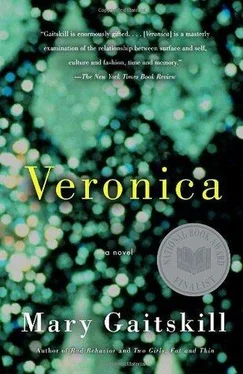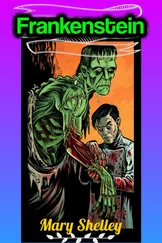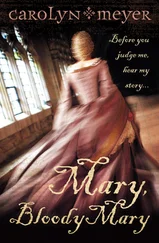And so we lay naked on his rumpled bed. I was dimly aware that my body was exhausted and bewildered, but that didn’t matter. I was in an upper chamber, far above those feelings, eating sugar with both hands. The silky sheets were scattered with white powder, mixed with granules and little hairs that were pleasant to feel. A brown moth flapped around a rose-colored lamp shade. Cold air from an open window stirred the papers on the night table. René held me in his hairy arms and sang the pee-pee song. He said, “You fuck humpty-hump, like a little witch riding her broom!” I smiled and he stroked my hair. “That’s right, is good. I love my little witch! Riding humpty hump in the night!” Then he jumped up and said he wanted to go to a nightclub. But I had go-sees the next day! He laughed and said, “Don’t think like a shop girl! Think like a poet!”
The nightclub was dark and had hot laser lights speeding through it. The music was like something bursting and breaking. People’s faces looked like masks with snouts and beaks. But I knew they were beautiful. If the German ex-model I’d met in San Francisco had walked in, I’d have known she was beautiful, too. But I didn’t remember her. My eyes and ears were so glutted I had no room for memory. I didn’t sleep, but René was right: It didn’t show on my face. I got a job for an Italian magazine and left for Rome the day after. Little witch riding humpty-hump in the night.
Riding still, out of the roaring night into a pallid day of sidewalks and beggars with the past rising through their eyes. Shadows of night sound solemnly glimmer in rain puddles; inverted worlds of rippling silver glide past with lumps of mud and green weeds poking through. The past coming through the present; it happens. On my deathbed, I might turn toward my night table and see René’s rose-colored lamp shade with the brown moth flapping inside it. My sisters could be blubbering at my side, but if Alana walked in and stuck her tongue out at me, she’d be the one I’d see.
When my mother died, she talked to people we couldn’t see while we sat there like ghosts. Once, she screamed in pain and the nurse came to give her morphine. She stretched her slack neck and raised her patchy, spotted face. She looked at the nurse, rapt with pain and straining to see past it. There was pleading in her eyes: Make it better, Mama. Then I said something. I called her “Mod”; that’s what we called her for a while when we were kids. We didn’t mean modern; we just meant plump and silly, tootling around the house in her short white socks and ponytails— mom , with the soft, stumpy strength of a d. All of that was gone on her deathbed, but I said it so she would know I remembered. In response, she dropped her eyes down to look at me and Daphne. Even on her sick face we saw her bewilderment. She looked back at the nurse — at Mama. Who were these big women on her bed? What was “Mod”?
I close my sleek wet umbrella, and the Museum of Mod. We stopped calling her that because other kids ridiculed us for it. They thought we were saying our mother was like girls in miniskirts, and they laughed at how stupid she would look dressed like that. We couldn’t explain what we meant. Everybody knew you were supposed to say “Mom,” and that was it. This was at the very end of the sixties, which people say was a very free time. But really the style suit was very strict then. It applied even to what children could call their mothers.
I turn off the main street and enter a residential zone. Well-tended houses sit in neat yards with trees. Yellow-and-white recycling buckets stand brightly curbside. Juice and jam jars for the kids, wine and fancy water bottles for the adults. My friend Joanne lives here. She and her husband, Drew, share a house with four guys in their twenties. Joanne was a teenager in San Francisco at the same time I was, but I only met her when I moved to Marin thirteen years ago. We met in a support group I used to go to for people with hepatitis C. She and Drew have hepatitis and AIDS. It’s shitty, but the drugs are a lot better now and the virus is weaker.
In Paris, things happened fast. Two weeks after my first job, I met the head of Céleste. His name was Alain Black; he was a South African with a French mother. He was the man I had glimpsed on my first day there. He was lean and pale, nearly hairless. His eyes had thick, heavy lids. They were green, gold, and hazel, so mixed that they gave an impression of something bright swarming through his irises. Mostly, the swarming was just emotions and thoughts happening quickly. But there was also something else, moving too fast for you to see what it was. He asked if I had a boyfriend yet. When I said, “René,” he laughed and said, “Oh, René!” Then he said I needed a haircut. Called a hairdresser, told him what to do, and sent me to the salon in a taxi. The salon was full of wrinkled women staring fixedly at models in magazines. When I walked in, they frowned and glared. But the girl at the desk smiled and led me through rows of gleaming dryers, each with a woman under it, dreaming angrily in the heat. The hairdresser didn’t even need to talk to me. He talked to someone else while I stared at myself in the mirror. When it was done, I made the taxi take me back to the agency. It was closed, but the doorman with mad eyes knew to let me in. He knew where I was going and he knew who else would be there. Alain looked up and smiled. “Do you like it?” I asked. He stood and said of course he liked it, it had been his idea. Then he jumped on me.
I say “jumped” because he was quick, but he wasn’t rough. He was strong and excessive, like certain sweet tastes — like grocery pie. But he was also precise. It was so good that when it was over, I felt torn open. Being torn open felt like love to me; I thought it must have felt the same to him. I knew he had a girlfriend and that he lived with her. But I was still shocked when he kissed me and sent me home. At “home,” I wrapped myself in a blanket and looked out the window at the darkening mass of slanted roofs. René came by. I wouldn’t see him. Darkness gradually filled the room. The phone rang; it was my mother — her tiny voice curled up in a tiny wire surrounded by darkness. I talked to her through clenched teeth. I told her she was a housewife who didn’t understand anything about the real world. She told me I didn’t know what I was talking about, but I could hear she was hurt. After I hung up, I could feel it, too. Her hurt was soft and dark and it had arms to hold me as if I were an infant. I sank into her soft dark arms, into a story of a wicked little girl who stepped on a loaf and fell into a world of demons and deformed creatures. She is covered with snakes and slime and surrounded by the hate of every creature trapped with her. She is starving, but she can’t eat the bread still stuck to her feet. She is so hungry, she feels hollow, like she’s been feeding on herself. In the world above, her mother cries for her. Her tears splash scalding hot on her daughter’s face. Even though they are tears cried for love, they do not bring healing; they burn and make the pain worse. My mother’s tears scalded me and I hated her for it.
My roommate came home and turned on the light, and — bang! — there was no mother and no demons. She clacked across the floor in her high heels, chatting and wiping her lipstick off. It was 4:00 in the morning, but when she saw how unhappy I was, she took out her tarot cards and told my fortune until it came out the way I wanted it. (Luxury. A feast. A kind, loyal woman. Transformation. Home of the true heart.) The sun rose; the enamel rooftops turned hot violet. I had just lain down on the couch to sleep when Alain called and told me I was going to be moving into an apartment on rue du Temple. The rent would be taken care of. Everything would be taken care of.
Читать дальше












